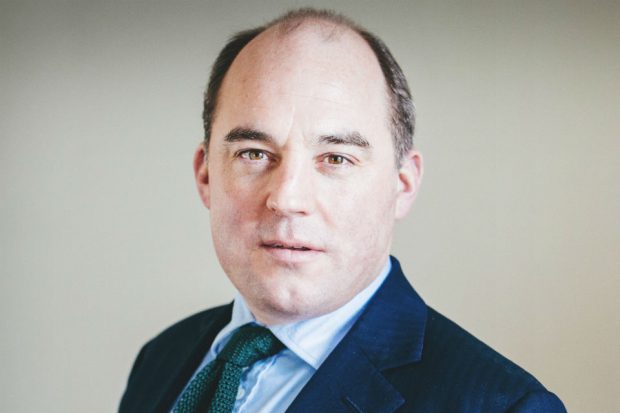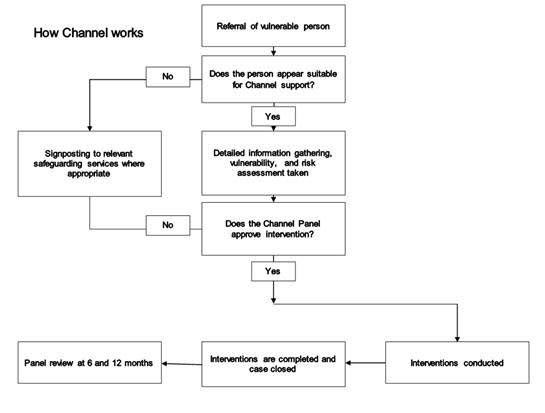
We have today published extensive data around the Home Office's counter-radicalisation safeguarding programme Prevent.
The publication - which is available on gov.uk - focuses on statistical data of individuals referred to and supported through the Prevent programme from April 2015 to March 2016; it also includes statistical data of individuals referred to and supported through the Channel programme from April 2012 to March 2015.
This is the first time such data has been made public with the figures showing how many people have been referred to Prevent and what type of support, if any, they went on to receive including how many have received specialist support through Channel. The data is broken down by the type of concern, age, gender, and which sector the referral came from.
Responding to the figures, Security Minister Ben Wallace said:
At its heart, the Prevent programme is just one of a number of ways to safeguard vulnerable people from exploitation. The voluntary Channel scheme has seen real results in helping divert people away from terrorism and violence. The programme is helping to save lives and keep us safe.
The Government has been determined to bring greater transparency to the programme and I am delighted that by publishing these figures we can help inform the debate around the policy. There is still a way to go to improve the approach and awareness of how to better safeguard our children and vulnerable adults, but the policy is going in the right direction.
Factsheet: Channel Programme
Overview
Channel is a voluntary, confidential programme which operates throughout England and Wales to safeguard people identified as vulnerable to being drawn into terrorism. It is a multi-agency process, involving partners from the local authority, the police, education, health providers, and others. Referring possible cases of early stage radicalisation works in a similar way to safeguarding processes designed to protect people from gang activity, drugs, and physical/sexual abuse.
Key messages
- Participation in the Channel programme is voluntary and confidential. Many types of support are available, addressing educational, vocational, mental health, and other vulnerabilities. Ideological mentoring is common.
- Channel panels will only offer support where they consider that it is necessary and proportionate to do so. In 2015/16 36 per cent of those discussed at a Channel panel went on to receive support from Channel demonstrating the process identifies genuine referrals.
- The number of Prevent referrals is very small compared to other forms of safeguarding. In 2015/16 7,631 individuals were referred to Prevent whereas 621,470 children were referred to social services in the same period. Of these 35.3% resulted in no further action before or after assessment, similarly 36% of Prevent referrals required no further action.
- Channel addresses all forms of terrorism, including Islamist and far right wing. Just over a quarter of all people supported in 2015/16 were the result of far right concerns.
- The education sector is engaged and understands the Prevent duty as shown by the high level of engagement through education sector referrals. This is vital given the majority of those found to need support from Channel are under the age of 20.
Key facts and figures
- In 2015/16 a total of 7,631 individuals were referred to Prevent due to concerns they were vulnerable to terrorism. 50 per cent were signposted to alternative support, 36 per cent required no further action and 14 per cent were discussed at Channel panels.
- Of those that received Channel support in 2015/16, 83 per cent left with their vulnerability successfully reduced.
- In 2015/16, 36 per cent of those receiving support on Channel was as a result of referrals from the education sector.
- Of individuals supported by Channel in 2015/16 over 70 per cent were aged 20 years or under and 85 per cent were male.
- Two thirds of individuals receiving Channel support in 2015/16 were as a result of Islamist concerns.
- Between 2012/13 and 2015/16 the number of people supported by Channel has more than doubled from 159 individuals to 381.
- Participation in Channel is voluntary and confidential and is not a criminal sanction.
- The Prevent Duty came into force in 2015 and ensures that specified authorities have to pay due regard to the need to prevent people from being drawn into terrorism
Who can make a referral?
A referral can come from anyone who is concerned about a person they know who may be at risk of radicalisation, whether a family member, friend, colleague or from a wide range of partners: social services, children and adult services youth offending teams, health, police, education establishments, and places of worship and community organisations (through their normal safeguarding process).
What happens to a referral?
All referrals are carefully assessed by the police and the local authority to see if they are suitable for Channel or may require another intervention such as mental health support. If suitable, the case is discussed with all relevant partners at a Channel panel to decide if an intervention is necessary. Referred individuals are informed and must give consent (or via a parent or guardian if they are children) before an intervention can take place.
How does a Channel panel work?
The Channel panel is chaired by the local authority and works with multi‐agency partners to collectively assess the risk to an individual and decide whether an intervention is necessary. If a Channel intervention is required, the panel works with local partners to develop an appropriate tailored support package. The support package is monitored closely and reviewed regularly by the Channel panel.
Who sits on a Channel panel?
The Channel panel is chaired by the local authorities and can include a variety of statutory partners such as the police, children’s services, social services, education professionals and mental health care professionals.
What kind of support is offered via Channel?
The type of support available is wide-ranging, and can include help with education or career advice, dealing with mental or emotional health issues, drug/alcohol abuse, and theological or ideological mentoring from a Channel Intervention Provider (A specialist mentor).

Sign up for email alerts and follow us on Twitter.
